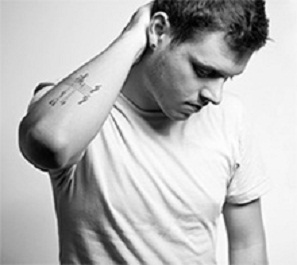The Avant Music Festival, a 5-night event being held at The Wild Project in NYC between Friday, Feb 10th and Saturday the 18th, promises to be a compelling series of shows of music in the vein of avant-garde. Along with music by living composers Randy Gibson (whom you are about to hear from), Eve Beglarian (Songs From The River and Elsewhere) and Jenny Olivia Johnson (After School Vespers), there is a performance of Schoenberg‘s ground-breaking work Pierrot Lunaire and a 2-part show on Saturday the 11th celebrating the 100th Birthday of John Cage at 4 PM and 8 PM respectively (This concert, by the way, features Vicky Chow performing the great Sonatas and Interludes on prepared piano). Randy, who is one of the curators of the event, spoke briefly about the festival as well as himself. (more…)
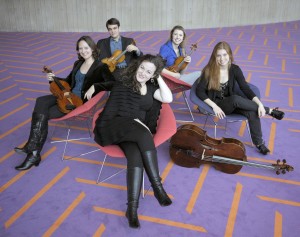 The Latin American Music Center at Indiana University is presenting American Cosmology, a program designed specially for the Composers Now festival that is involving many members of New York’s new music scene in February. Invited by Composers Now’s artistic director, composer Tania León, the program will be presented on February 4th a the Music Now Marathon in Symphony Space , and on February 6 at the Americas Society Concert Series.
The Latin American Music Center at Indiana University is presenting American Cosmology, a program designed specially for the Composers Now festival that is involving many members of New York’s new music scene in February. Invited by Composers Now’s artistic director, composer Tania León, the program will be presented on February 4th a the Music Now Marathon in Symphony Space , and on February 6 at the Americas Society Concert Series.
American Cosmology was designed by the LAMC’s director Carmen-Helena Téllez to showcase complementary meditations on the sky and the cosmos represented in David Dzubay’s Astral String Quartet and in Gabriela Ortiz’s Baalkah for String Quartet and Soprano. Astral, written for the Orion Quartet, was inspired by the ensemble’s name and by the constellations visible in the sky while the composer worked at the MacDowell Artsit Colony in New Hampshire. Baalkah was composed for the Kronos Quartet and Dawn Upshaw, and sets texts from Mayan cosmology addressing patterns of existence and the place of humanity in the universe.
David Dzubay has received commissions from Meet the Composer, Chamber Music America, the National Endowment for the Arts, the US-Mexico Fund for Culture, and the Fromm and Barlow foundations, among others. Recent honors include Guggenheim, MacDowell, Yaddo, Copland House and Djerassi fellowships, a 2011 Arts and Letters Award from the American Academy of Arts and Letters, and the 2010 Heckscher Prize. His music has been performed by orchestras, ensembles and soloists in the U.S., Europe, Canada, Mexico, and Asia, and is published by Pro Nova Music and recorded on the Sony, Bridge, Centaur, Innova, Naxos, Crystal, Klavier, Gia, and First Edition labels.
David Dzubay writes: “Beginning work on a piece for the Orion String Quartet, and taking a cue either from the group’s name or perhaps from gazing upwards on evening strolls around the MacDowell Colony in rural New Hampshire, I decided to focus on the stars, composing an “Astral” quartet, movements of which would look at stars and space in various ways. Though the movements are somewhat independent, they do share musical elements and together are balanced on the curious middle movement. Like our galaxy, the quartet has a spiral structure, both in the shape of an eight-pitch ‘spiral motive’ and in the duration of the movements (roughly 5′-3′-2′-4′-3′). A recurring element, first heard in the opening bars, is a group of three evenly spaced attacks, a representation of Orion’s Belt, the tight grouping of three stars lined up in the Orion constellation.
Gabriela Ortiz is one of the foremost composers in Mexico today. Recent commissions and premieres include her new videopera Unicamente la Verdad with the Indiana University Contemporary Vocal Ensemble under Carmen-Helena Téllez; Altar de Piedra for three percussion players, timpani and orchestra for Los Angeles Philharmonic Orchestra with Esa- Pekka Salonen and Kroumata percussion ensemble; Zócalo-Bastilla, for violin, percussion and orchestra premiered by violinist Pierre Amoyal, and Altar de Muertos, a string quartet commissioned by Kronos Quartet.
Baalkah, which means ‘world’ or ‘cosmos’ in Maya, was inspired by the cosmological beliefs of the Maya of the Yucatan Peninsula and of other Mexican and Central American native peoples. For over 5,000 thousand years, these Native American peoples have conceived the world as being divided into 4 cardinal directions: east, north, west and south. In each one of these directions stands a gigantic tree that supports the sky, and each one has its particular cosmological characteristics, such as its own ruling deity, its own color, a set of related plants and animals, and, more generally, its own mood or personality. The lyrics of the first four songs of Balkah are taken from a 17th century Maya book, the Chilam Balam of Chumayel, a priceless depository of centuries of historical and religious wisdom inherited by Maya priests and kept hidden from the prosecution of the Catholic church. Each member of the string quartet represents one the four cardinal directions, and the center is represented by the soprano.
The ensemble includes Madalyn and Cicely Parnas, both soloists and members of the Parnas duo that has received accolades of “stunning” and “electrifying” in the New York Times. Madalyn will play a solo piece by Timothy Dunne earlier in the evening on of Saturday February 4th. Cicely was the inaugural artist-in-residence of the radio program Performance Today last December. Violinist Tim Kantor has been a featured artist with the Banff and Aspen festivals as well as with the Cleveland Pops; and violist Rose Wollman has performed all over the word with conductors such as Pierre Boulez, Fabio Luisi, Hugh Wolf, Joseph Silverstein, and Larry Ratcliff in orchestras all over the world. A fierce new music performer, soprano Sharon Harms will return later to New York for the performance of Charles Wuorinen’s It Happens Like This, which she premiered under the baton of the composer at Tanglewood last summer.
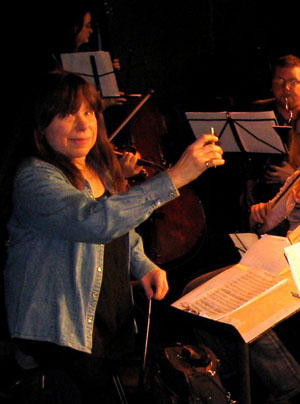 2011 was an great year for freelance composer/cellist/conductor Peri Mauer. Premiere performances of her work this past year included her trio AFTERWORDS, for clarinet, cello, and piano; BLOGARHYTHM: Scenes 1 & 2 for 24-piece chamber ensemble (which she also conducted) RHAPSODANCE, for clarinet and piano; BLOGARHYTHM ON THE ROCKS, for chamber ensemble, as part of Make Music New York 2011 in Central Park in June; and MORNING IN A MINUTE, in the Vox Novus Concert Series at Jan Hus Church in October. In 2011 her music was heard on the radio for the first time as well. Just this past January brought the world premiere of her piece for three cellos in Composers Concordance Festival 2012, and she’s about to have the world premiere of PIXELIANCE this Sunday, Feb. 5th at 3 pm, St. Mark’s Church in- the- Bowery (131 East 10th St.), as part of a New York Composers Circle concert paying tribute to composer Dinu Ghezzo, and also featuring works by Elliott Carter, Robert Cohen, Debra Kaye, Nataliya Medvedovskaya, Nailah Nombeko, and Matt Weber.
2011 was an great year for freelance composer/cellist/conductor Peri Mauer. Premiere performances of her work this past year included her trio AFTERWORDS, for clarinet, cello, and piano; BLOGARHYTHM: Scenes 1 & 2 for 24-piece chamber ensemble (which she also conducted) RHAPSODANCE, for clarinet and piano; BLOGARHYTHM ON THE ROCKS, for chamber ensemble, as part of Make Music New York 2011 in Central Park in June; and MORNING IN A MINUTE, in the Vox Novus Concert Series at Jan Hus Church in October. In 2011 her music was heard on the radio for the first time as well. Just this past January brought the world premiere of her piece for three cellos in Composers Concordance Festival 2012, and she’s about to have the world premiere of PIXELIANCE this Sunday, Feb. 5th at 3 pm, St. Mark’s Church in- the- Bowery (131 East 10th St.), as part of a New York Composers Circle concert paying tribute to composer Dinu Ghezzo, and also featuring works by Elliott Carter, Robert Cohen, Debra Kaye, Nataliya Medvedovskaya, Nailah Nombeko, and Matt Weber.
I asked Peri to answer a few questions from me, and she was happy to oblige:
Besides your usual hectic rounds as a freelance cellist/conductor, you’ve had a pretty good and busy year for performances of your own music. How did all of these things come together?
Being a constant presence on the musical scene and getting in on just about every opportunity I come across is the main reason I get so much work. My motto is “Seize the moment”, and there is so much opportunity, so many amazing people to hook up with. I see myself as part of a larger picture, and the possibilities for so much creativity and actualization are everywhere.
Your piece BLOGARHYTHM had a couple really well-received performances (in very different venues, I might add!). Could you tell me a little more about the title/inspiration, and the form of the piece?
Overall, BLOGARHYTHM is what I think of as an “umbrella piece”. I can adapt it to different performance situations and will keep adding scenes to it when given an opportunity to present it. It is totally my own project, my musical blog set to performance, and I enjoy it tremendously. Plus I get a chance to conduct and put ensembles together, which I also really enjoy. With it, I can integrate all the various facets of my musical life.
With all those previously-mentioned hectic rounds, where do you find the time to really sit down and compose? How hard is it to keep a good balance between playing and composing?
Doing both playing and composing are extremely important to me. At times it can be very difficult to maintain the balance (like right now, having just returned home from a three-hour rehearsal for a concert), but I do my best. It is like having two children that you love equally and want to be sure they get equal time, one is not favored over the other, etc. The result is I am always working on some project. This is what I do, this is my life.
You’re a life-long New Yorker? Does your life now resemble whatever plans you were laying for it back when you were just coming up through school? You’ve seemed to avoid the standard, safer course of sticking with teaching; was that a conscious decision?
Yes, I am a life-long New Yorker. Truth is, I never made any plans. I just kept going! I began piano when I was 5, cello at 11, went to the High School of Music & Art, and just never stopped. I am a bit unusual as far as composers go, in that I love to perform and miss it terribly if I let it go. I am miserable when things fall into an everyday sameness, so I never sought out either a steady orchestra or teaching gig. It would drive me crazy to have a regular ongoing routine.
When you look back at musical life in New York when you were just coming out from The Manhattan School of Music, and what you see going on now, what seems different/same, easier/harder?
The internet has definitely made everything a lot easier. I am amazed at how easy it is to learn of opportunities, to create them, to hook up with them, and get them going creatively.
What influences have been the guiding lights and inspiration for your own music language?
My own ear : ) … I’ve always liked the sound of 12- tone music. Discovering Webern was very pivotal for me. Although my own music isn’t serial, it is 12-tone. I write from my life, and therefore my work is dramatic and emotionally relevant.
One thing you wish I’d ask you…..
Hmm, not sure! : ) My life is a musical one, this is what I do.
As I alluded in an earlier post, Washington, D.C.’s new music scene has been exploding lately. Part of that explosion comes courtesy of Kathleen Supove, who on Tuesday will be performing one of her “Exploding Piano” programs at the new music series at the Atlas Performing Arts Center (full disclosure: I’m that series’ curator). In anticipation of this event, I’ve asked Kathy to write a few words about her program:
 When Armando Bayolo asked me to perform on his New Music Series at the Atlas Theater in Washington D.C., I immediately thought: what am I going to play at the NATION’S CAPITAL? …the place that’s home to the Smithsonian, the Kennedy Center Honors, and the place from which we all imagine sending time capsules to other planets.
When Armando Bayolo asked me to perform on his New Music Series at the Atlas Theater in Washington D.C., I immediately thought: what am I going to play at the NATION’S CAPITAL? …the place that’s home to the Smithsonian, the Kennedy Center Honors, and the place from which we all imagine sending time capsules to other planets.
Something I’m proud of is having commissioned more than a few stellar pieces that could take their places in the 21st Century piano repertory. Particularly, I would cite the multimedia works, with sound tracks and, sometimes, video. Not only are they great virtuosic vehicles with all those challenges and rewards, but they have soundtracks that are original, evocative, and infectious. Send them to the moon!!
Also, I saw this as a time to REPRESENT: it’s an America that is about quilting as well as about Steve Reich’s “Different Trains”, about Quaker revival meetings as well as the Metropolitan Opera. I wanted things that reflected the American musical language in some way, and I also wanted to reflect the American sense of humor.
Here’s the program:
“Isabelle Eberhardt Dreams of Pianos” by Missy Mazzoli
“The Same Sky” by Carolyn Yarnell
“On Track” by Anna Clyne
“What Remains of a Rembrandt” by Randall Woolf
“Digits” by Neil Rolnick
You can’t find a better example of the American vernacular crafted into art music than Missy’s piece; Carolyn’s piece is quite simply one of the best piano works of the last 20 years. Anna Clyne may have been born in London, but here she demonstrates a truly American sense of humor and appropriation of found sounds; Neil’s piece exhibits all of the above with an American aesthetic that perhaps finds it roots in Scott Joplin and other early ragtime artists.
These are not the only pieces that I love and am proud to program, but they certainly represent a kind of hit parade for me. But I also wanted something new. What fun is performing without that? Here’s where Randall Woolf’s piece came in. Full disclosure: he’s my husband. He hadn’t written a piece for me in a decade, but did so this fall. It was premiered two weeks ago in Florida (a commission by New Music New College), and I wanted to add it to the mix. The piece is part of a large project on which I’m embarking called Digital Debussy, in which composers create works that either subject Debussy fragments to modern electronic processes or, in some way, realize a 21st century Debussy. Randy is one of those maverick Americans, who is always pushing his and the world’s envelope a little. I knew he wouldn’t disappoint on this.
I can’t wait to see what the audience in Washington D.C. will be like. I’m pretty sure they won’t be bored. Now, to figure out what I’ll wear and what I’ll say…….
-KS
Hilary Hahn is at it again, working her way through chats with all of the composers commissioned for her “In 27 Pieces” collection of encores. This time up it’s a bright, young up-and-comer by the name of Jennifer Higdon (OK, maybe not quite so young, and maybe she’s pretty much arrived, but she’s still pretty darn bright!)
[youtube]http://www.youtube.com/watch?v=pu7PewnFGxo[/youtube]
 Washington, D.C. readers may have noticed that the new music scene in the District has been exploding lately. This week brings another significant event when New York’s Cygnus Ensemble makes its Washington debut at the Library of Congress. The concert, part of a mini-residence by Cygnus at the Library, is presented as a tribute to legendary violinist and composer Fritz Kreisler. Rarely heard music by Kreisler from the Library’s Fritz Kreisler collection will be performed, featuring guest violinist Miranda Cuckson on Kreisler’s own Guarneri del Gesù violin.
Washington, D.C. readers may have noticed that the new music scene in the District has been exploding lately. This week brings another significant event when New York’s Cygnus Ensemble makes its Washington debut at the Library of Congress. The concert, part of a mini-residence by Cygnus at the Library, is presented as a tribute to legendary violinist and composer Fritz Kreisler. Rarely heard music by Kreisler from the Library’s Fritz Kreisler collection will be performed, featuring guest violinist Miranda Cuckson on Kreisler’s own Guarneri del Gesù violin.
Most notably for new music fans, the concert features the world premiere of Harold Meltzer’s Kreisleriana, for violin and piano, commissioned by the Library of Congress’ McKim fund. The concert also features Meltzer’s Pulitzer-Prize finalist work Brion, commissioned by the Barlow Endowment for the Cygnus Ensemble.
The concert begins at 8:00 p.m. at the Library’s Coolidge Auditorium. There will be a pre-concert discussion by Mr. Meltzer and Cygnus founder William Anderson at 6:15 p.m. at the Library’s Whitall Pavillion. No tickets are required for the pre-concert talk. Tickets to the main concert are free but require reservations and may be obtained by contacting Ticketmaster online or at 202.397.7328.
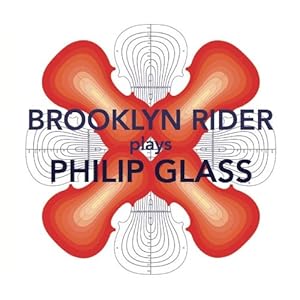
Philip Glass is 75 today. The American Composers Orchestra gives the American premiere of his 9th Symphony at Carnegie Hall tonight.
My interview with Dennis Russell Davies, who is conducting the ACO concert, is up on Musical America’s website (subscribers only).
If you’re looking for a terrific way to celebrate PG’s birthday, Brooklyn Rider’s latest CD on Orange Mountain Music includes Glass’s first five string quartets. The earthiness with which they play the music may surprise you at first, but it provides a persuasive foil for some of the more motoric, “high buffed sheen” toned performances of minimalism that are out there. In a 2011 video below, they give a performance of a more recent work, a suite of music from the film Bent.
[youtube]http://www.youtube.com/watch?v=6990pYvaHQk[/youtube]
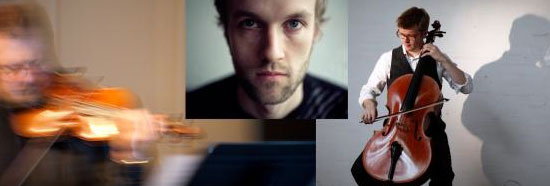 With so much of the new music buzz being (deservedly) sucked up by the Ecstatic Music Festival right now, I wanted to make sure that the S21 faithful know about what looks to be a great evening coming up on February 10 at 9 pm at Joe’s Pub, featuring three of “hottest” musician/composers around.
With so much of the new music buzz being (deservedly) sucked up by the Ecstatic Music Festival right now, I wanted to make sure that the S21 faithful know about what looks to be a great evening coming up on February 10 at 9 pm at Joe’s Pub, featuring three of “hottest” musician/composers around.
Todd Reynolds, dubbed by ur…me, “the Eric Clapton of the electronically souped up violin,” will perform a few works from his album Outerborough, which was named Amazon’s Best Classical release of 2011, and also perform with the British cellist Peter Gregson, who has collaborated with Tod Machover and Max Richter, among many other luminaries. He will be marking the first US performance of Nonclassical’s latest release, Cello Multitracks (written by Gabriel Prokofiev), which he premiered in London in 2011. Prokofiev, who is also in the US for the world premiere of his latest orchestral work, has gained a unique status as an innovative, far-reaching figure within British contemporary music. His work as a composer has brought instruments such as turntables, electric guitars, and oil drums, to high profile concerts including the BBC Proms, earning him critical acclaim in the process. Meanwhile, as a DJ Prokofiev has carved a singular reputation, playing to audiences at the New York Met and around the world, combining his background in urban music production with a passion for 20th and 21st century classical music.
Book it, Dano…

Many of us waited with bated breath during the recent breakdown of talks between management and the orchestra at NYC Opera. Even though the season is proceeding, the company’s plan to keep themselves afloat (if not artistically viable) seems dubious at best. No music director, draconian cuts for the players and chorus, and no base of operations. Instead NYCO will present a truncated season at several venues. After hearing how shabbily the company has treated its employees – while George Steel continues to make in excess of $300,000 – why would they expect their audience to follow them around town? It portends difficult days to come for opera – and opera goers – in the city. Take nothing away from the Metropolitan (although its recent conductor troubles are noteworthy): but a city with New York’s operatic history would seem to have room for more than one major company.
Fortunately, as Zachary Woolfe points out in a recent excellent article in the NY Times, several smaller companies are attempting to fill the void left by City Opera’s vicissitudes. Opera Omnia, Gotham Chamber Opera, DiCapo Opera, and others are making it possible to hear a plethora of works from the repertoire that are unlikely to be programmed any time soon, either at the Met or languishing NYCO: baroque gems, less known Mozart, neglected bel canto, and the like. The remaining challenge, and it’s a daunting one, is to nurture operas by living composers.
To further the efforts of those working towards that end, three longtime champions of contemporary works – HERE’s Kim Whitener and Artistic Director Kristin Marting and Beth Morrison of Beth Morrison Projects (BMP) – have recently announced a promising new venture. Prototype: Opera/Theatre/Now, a festival that they plan to be an annual event, debuts in January 2013.
Unlike NYCO, Prototype will have a single performance venue, HERE’s space in Soho, for which they will try to build an audience. And, also unlike City Opera, the festival, with steady hands at the rudder, will pursue a coherent artistic vision, presenting chamber operas in the contemporary classical/post-classical vein. Some of the names being mentioned as participants in the Prototypes‘s initial presentations should be familiar to those who’ve attended recent editions of VOX: David T. Little, Byron Au Yong, and Bora Yoon.
Dare we hope for an open call for proposals for new chamber operas? More information about Prototype as it’s available.
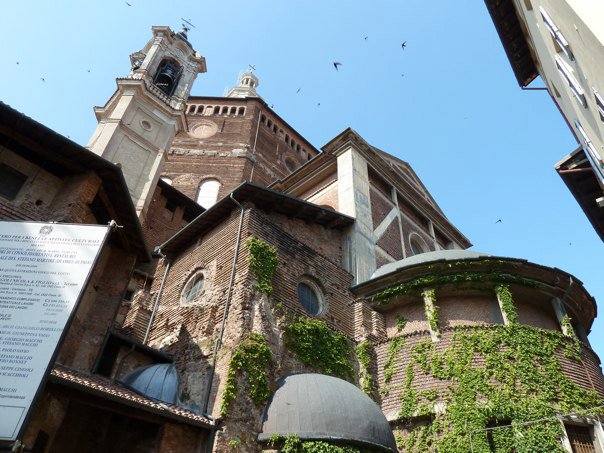 If you’re an emerging composer looking to produce and promote your work, hear it played before live audiences by first-rate musicians, learn from and hang out with music notables like Christopher Theofanidis and Irvine Arditti in the historic drop-dead gorgeous Northern Italian city of Pavia, check out the highSCORE Festival, Italy’s leading annual contemporary music festival and master classes program. The dates are July 23 – August 4.
If you’re an emerging composer looking to produce and promote your work, hear it played before live audiences by first-rate musicians, learn from and hang out with music notables like Christopher Theofanidis and Irvine Arditti in the historic drop-dead gorgeous Northern Italian city of Pavia, check out the highSCORE Festival, Italy’s leading annual contemporary music festival and master classes program. The dates are July 23 – August 4.
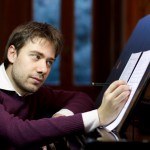 “Last year’s program was a huge success,” says Artistic Director Giovanni Albini. “In 12 intense days we had nine lectures, several hours of both master classes and private lessons, 54 new music scores performed (of which 35 were premieres) in seven concerts, 30 participant composers and performers, and many guest artists. Plus Italian classes, a guided trip of the City of Pavia, and an outstanding workshop on Italian cooking.”
“Last year’s program was a huge success,” says Artistic Director Giovanni Albini. “In 12 intense days we had nine lectures, several hours of both master classes and private lessons, 54 new music scores performed (of which 35 were premieres) in seven concerts, 30 participant composers and performers, and many guest artists. Plus Italian classes, a guided trip of the City of Pavia, and an outstanding workshop on Italian cooking.”
This year’s guest of honor is the legendary violinist Irvine Arditti, who has recorded more than 180 CDs with his own String Quartet and more than 30 as a soloist, premiering the music by the most important composers of the contemporary period. Arditti will present a lecture on contemporary violin performing practices, providing participant composers with his expertise and knowledge of modern music.
 Christopher Theofanidis, fresh off the success of his opera Hearth of a Soldier, staged by the San Francisco Opera, is the Faculty Chair of the Festival for the third year in a row.
Christopher Theofanidis, fresh off the success of his opera Hearth of a Soldier, staged by the San Francisco Opera, is the Faculty Chair of the Festival for the third year in a row.
“Christopher is a great artist and an amazing teacher with an enormous experience,” Albini says. “A wonderful person, entirely dedicated to participants during the days of the event. He is able to offer so much, from both artistic and human point of view.”
Mario Garuti, Head of the Composition Department of the Conservatory of Milan, Dmitri Tymoczko from Princeton University, Amy Beth Kirsten, Ugo Nastrucci, Marina Giovannini, and Giovanni Albini complete the faculty roster.
Once again this year, the highSCORE Prize will be awarded to the best participant composer, who will have the chance to come back for free in 2013. In the previous editions, the highSCORE Prize has been awarded to Jenny Beck (2010) and Riho Esko Maimets (2011).
The 2012 edition will focus on the music for String Quartet, solo Violin, Viola, Cello, and Guitar (classical or electric), but participants are also invited to submit music for theorbo and lute, with or without electronics. In 2010, Ugo Nastrucci gave a lecture on contemporary music for early instruments. To see some tips on how to write for such instruments, see last year’s highSCORE Proceedings.
Among the many call for scores dedicated to participants the clarinet ensemble led by Denis Zanchetta, piccolo clarinet at Teatro La Scala, Milan, stands out.
Performances during the festival will be presented at cultural and historical sites throughout Pavia. Such venues will include the famous church of St. Peter in the Golden Sky where St. Augustine and Boetius are buried, while the “F. Vittadini” Higher Institute of Music Studies, with its 20 plus large, well-equipped rooms with Vertical and Grand Pianos, is the core of the festival.
The event, under the artistic direction of Giovanni Albini and the executive production of Paolo Fosso, is produced by the highSCORE New Music Center. The Center has just published the CD “Quintets,” containing five scores for electric guitar and String Quartet written by the best composers of the 2010 festival. A new CD, including the best compositions of highSCORE Festival 2011 for solo guitar, will be recorded in the next few months.
Proceedings and video excerpts from the last editions can be found on the highSCORE New Music Center brand new portal.
